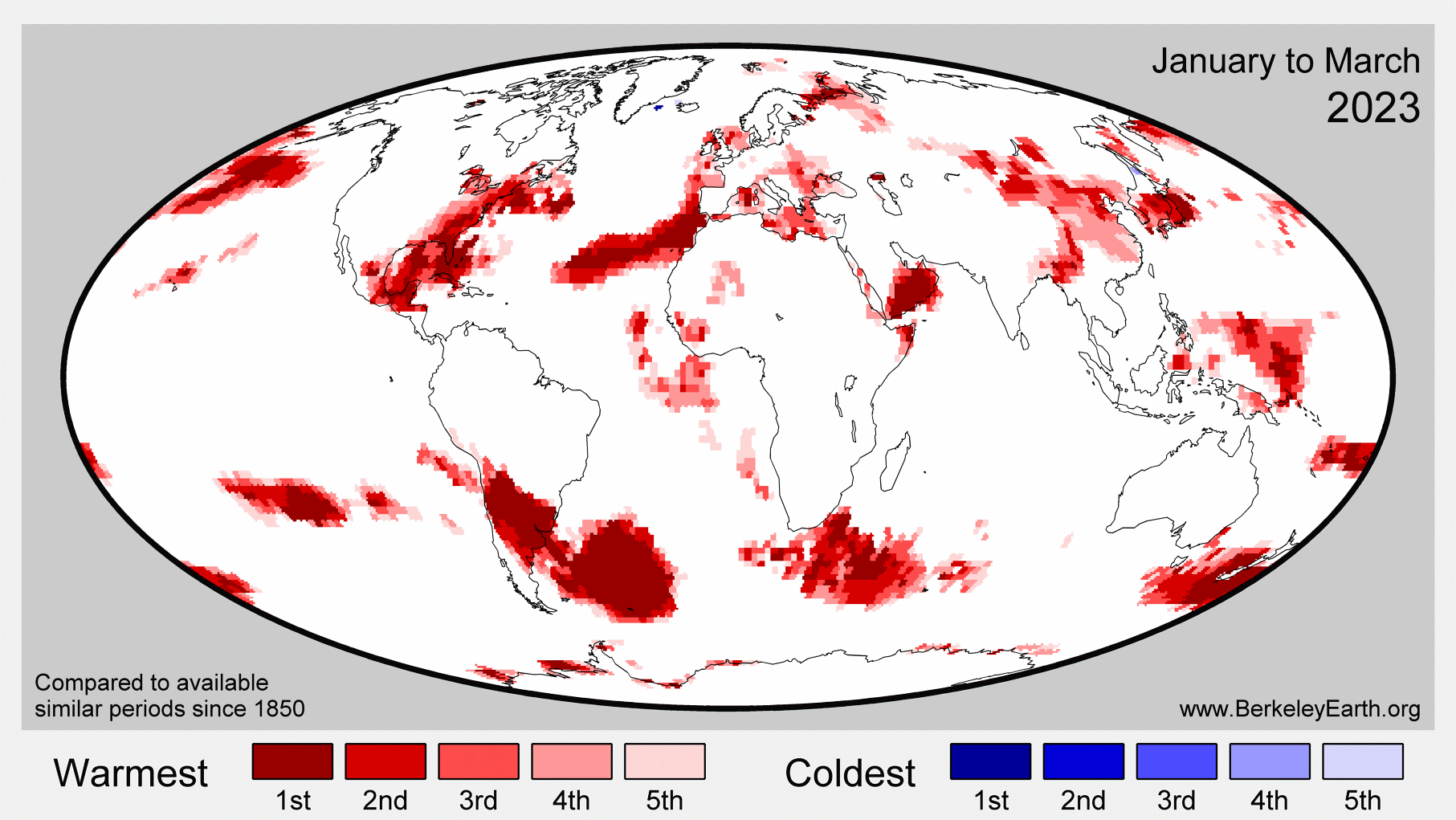Half of this year has passed with a bunch of alarming realities that Earth is currently not okay anymore. In just recent months, a series of distressing reports have shed light on the impending climate crisis and its implications for our world. From projections of surpassing the 1.5°C global warming threshold as early as 2030 to the disheartening rise of global sea level, the situation demands our immediate attention. Since the inception of the First World Climate Conference in 1979, the intensity of global warming and climate change has only escalated, leading us to the critical state we find ourselves in today. These climate predictions are rooted in evidence from recent history, prompting us to evaluate the changes witnessed thus far in 2023.
Atmospheric CO2 concentration, measured in parts per million (ppm), provides a valuable metric to gauge climate change. The observatory at Mauna Loa, managed by NOAA, tracks this measure. In 1958, the first recorded measurement stood at 313 ppm. However, as of January 1st, 2023, the figure had soared to 419.32 ppm, marking an increase of 1.85 ppm compared to the beginning of 2022. In June, an alarming record of 423.68 ppm was reached, representing a significant jump from the 398.81 ppm average of a decade ago. Unfortunately, these records are being shattered on an almost weekly basis, underscoring the rapid progression of climate change.
World temperature measurements provide another crucial indicator of climate transformation. The global mean temperature consistently remains near or above 1°C higher than the levels recorded between 1850 and 1900. In January, the average global air temperature registered at +0.87°C above the 1951-1980 climate baseline (+1.19°C compared to the 1880-1920 baseline). April witnessed the statistical tie for the fourth warmest April on record globally. Regional analyses further reveal areas where the first quarter's average temperatures approached or reached record highs. With over 99.0% certainty, the NCEI's Global Annual Temperature Outlook predicts that 2023 will rank among the ten warmest years ever recorded.
The alarming rise of sea levels adds to the climate concerns. In recent years, the accelerated melting of glaciers and record-high ocean heat levels have led to a significant increase in sea levels. From 2013 to 2022, the average rise in sea levels was 4.62mm per year, which is approximately double the rate observed in the first decade on record, from 1993 to 2002. This rapid change has resulted in a total rise of over 10 cm since the early 1990s. Sea level rise has significant effects on coastal areas and human activities. They lead to the flooding of low-lying wetlands and dry land, erode shorelines, cause coastal flooding, and increase the flow of saltwater into estuaries and groundwater aquifers. Moreover, higher sea levels make coastal infrastructure more susceptible to damage during storms. These changes demand proactive measures to protect coastal communities and adapt to the evolving environment.
The Intergovernmental Panel on Climate Change (IPCC) has projected that without stronger policies, a temperature rise of 1.5°C by 2030 –that is being our global climate action goal to limit– is inevitable and global warming of 3.2°C (with a confidence range of 2.2-3.5°C) is likely by 2100. These projections paint a stark picture of our future unless we implement necessary interventions and initiate systemic changes. As we progress through the year, we can anticipate numerous climate records being broken, further exacerbating the global crisis. It is imperative to recognize the urgency of our planet's plight and acknowledge that failure to act will lead to increasingly difficult circumstances, particularly for the most vulnerable among us. It is crucial that we acknowledge the Earth's remarkable regenerative powers and work collaboratively to restore and protect our planet for generations to come.
In conclusion, the state of our planet demands urgent and comprehensive action. The devastating reports and climate records being shattered serve as a wake-up call to the magnitude of the challenges we face. It is incumbent upon us to prioritize and implement effective policies and solutions that mitigate the climate crisis. By doing so, we can pave the way for a sustainable and resilient future. The time for action is now; let us rise to the occasion and preserve our planet for the well-being of present and future generations.
Writer: Mohammad Naufal
Editor: Rizqi Mulia Raya Rinaldi
Source:
https://www.star.nesdis.noaa.gov/socd/lsa/SeaLevelRise/LSA_SLR_timeseries_global.php
https://www.ncei.noaa.gov/access/monitoring/monthly-report/global/202301/supplemental/page-2
https://www.epa.gov/climate-indicators/climate-change-indicators-sea-level#ref5






